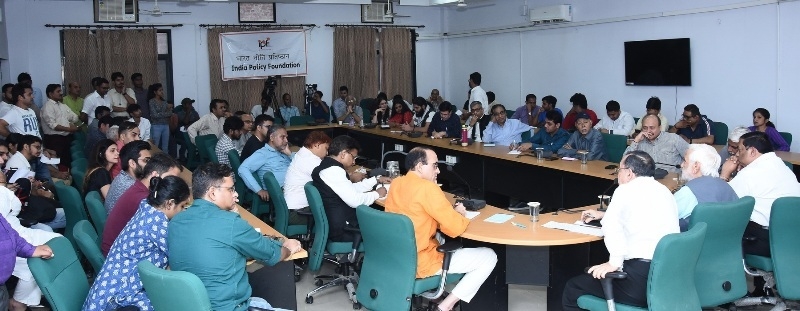Proliferation of Jihadi Elements put Pakistan’s Future at Stake
Total Views |
Speakers at a lively discussion on the 'Future of Pakistan' expressed concern over the failure of Pakistan government to curb the jihadi tendencies in its military establishment and society.
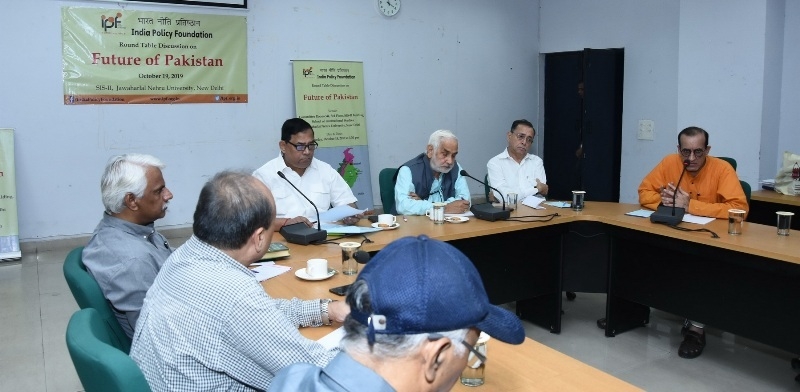
The Round Table discussion, organised by the India Policy Foundation at Jawaharlal Nehru University on October 19, 2019, had participants objectively and freely analysing the various scenarios emerging in Pakistan.
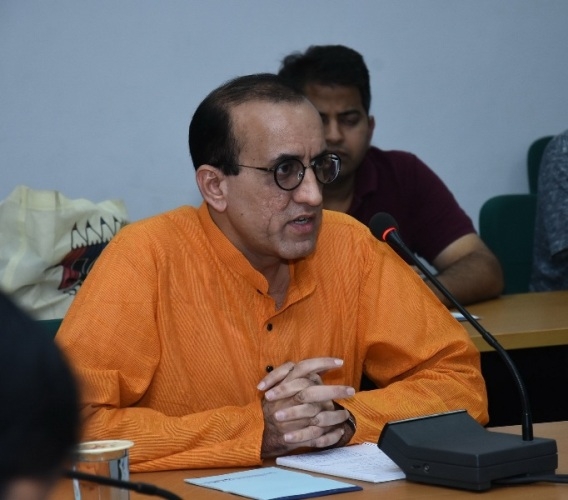
Initiating the discussion, Dr. Kuldeep Ratnoo, Director of IPF said that not only India, but most countries were looking at Pakistan with serious concern. It has demographic dividend and vast natural resources, but continued obsession with Kashmir and radical Islam has put it in a difficult situation today. External and internal crises have gravely weakened Pakistan’s clout among Muslim nations, and it had to face unprecedented global isolation recently when it went around complaining against India on Kashmir.
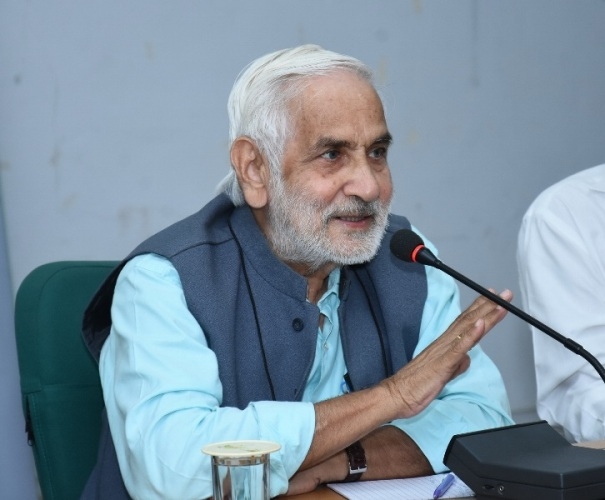
Renowned expert of international affairs, Prof. S.D. Muni, who chaired the discussion, mentioned that there was a time when people in the west were discussing about the doubtful future of India but situation has changed and now people are talking about the future of Pakistan. But he felt that contrary to prevalent perception, Pakistan was not going to collapse easily and Indians should look at the situation without emotional and political bias.
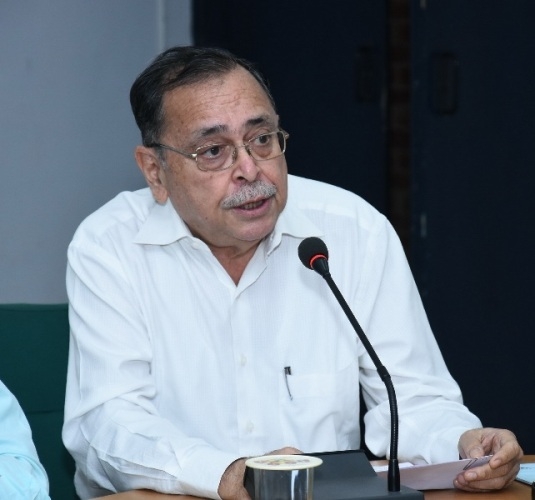
Rana Banerjee, Special Secretary (Retd.), Cabinet Secretariat presented an objective analysis of conditions prevailing in Pakistan highlighting dysfunctional institutions, sub-national fragmentation, vicious debt trap, civil-military dissonance, and in-bred jihadi forces as the main concerns. He said that the Army was running the Pakistan government by remote control but he cautioned that "too much of jingoism and rhetoric on Pakistan could be counter-productive."
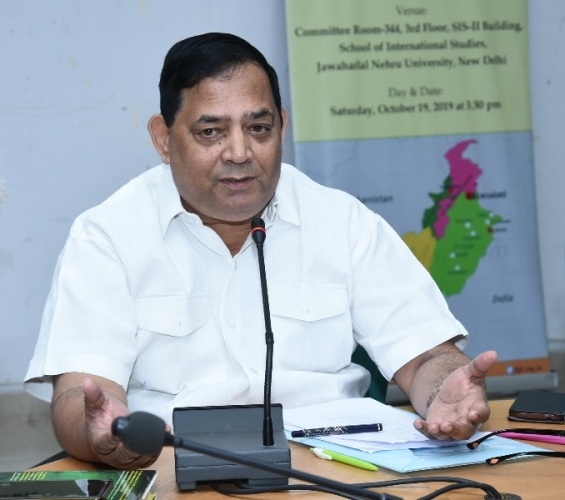
Col (Retd) RSN Singh, former RAW officer questioned the very existence of Pakistan saying that if Pakistan had to come out of its mess it must accept its Hindu past. He said that nobody had predicted till 1969 that Pakistan would disintegrate within next two years. He emphasized that the dilemma before Pakistan was to resolve the conflict between culture and religion, if it had to survive. By ignoring its cultural linkages with ancient India, Pakistan has cut its roots. But by encouraging Islamic fundamentalism, it has created a huge crisis for itself since jihadis are not fighting for Pakistan but for global jihad and military is using jihadis as a weapon for statecraft.
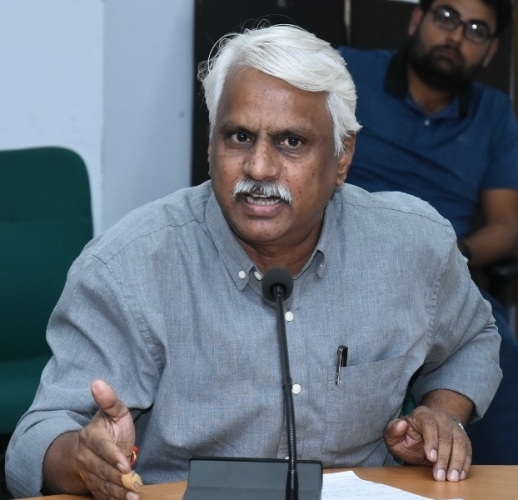
Pushpendra Kulshrestha, senior journalist and commentator, pointed out that it was very significant that India had started talking about Pakistan’s future only after 2014. He said that without proper understanding of the reasons behind creation of Pakistan, it is difficult to assess its present and predict its future. Highlighting the inherent hatred Pakistan has for Hindus and Hindustan, he said Kashmir was the big excuse for military establishment to keep Pakistan united, and now that excuse won’t work and that is why it was so rattled by the abrogation of Article 35 A and Article 370.
He asserted that Pakistan was nothing but predominantly Punjab with 148 out of 272 seats in the Parliament going to Punjabis. He claimed that there could be no real revolution or agitation in Pakistan as it had no middle- class, people are either very rich or very poor. However, he felt that a section of elite Indians had been supplying oxygen to Pakistan by frequent pretensions about peace and cooperation between Indians and Pakistanis.
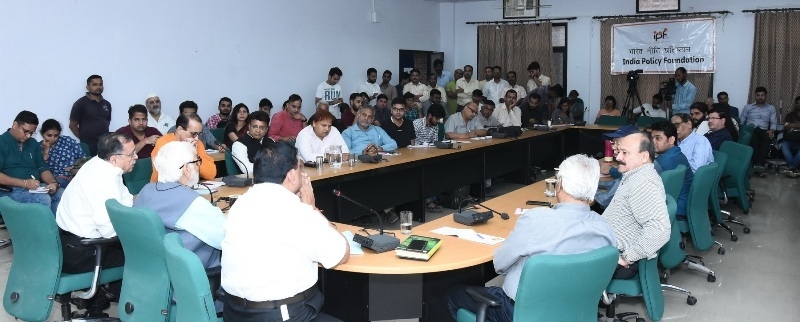 After a lively interactive session with other participants, Prof. Muni concluded the discussion by mentioning the fact that assessment of failed states by the West had included Pakistan for last few decades and so it was not correct to say that discussion on Pakistan's future began only after 2014. He opined that Pakistan might muddle through as it has always been passing through and its strategic location might come to its rescue because western powers wouldn’t want it to fail. He asserted that the influence of Pakistani military shouldn’t be ignored and it was capable of resolving internal strife through force, because it had high stakes in Pakistan’s stability.
After a lively interactive session with other participants, Prof. Muni concluded the discussion by mentioning the fact that assessment of failed states by the West had included Pakistan for last few decades and so it was not correct to say that discussion on Pakistan's future began only after 2014. He opined that Pakistan might muddle through as it has always been passing through and its strategic location might come to its rescue because western powers wouldn’t want it to fail. He asserted that the influence of Pakistani military shouldn’t be ignored and it was capable of resolving internal strife through force, because it had high stakes in Pakistan’s stability."If we have to take care of Pakistan, we should focus on Pakistan’s army. If the world can create conditions for civilians to push army back into barracks, it will really help. As long as Pakistani army keeps control over economy and polity of the country, Pakistan will not improve its relations with India”, said Prof. Muni.
In the end, Dr Kuldeep Ratnoo touched upon the immediate and long term challenges before Pakistan, and the repeated failures of its government in overcoming and preventing more such challenges. Terming the jihadi elements as Bhasmasurs, he said that the jihadi infrastructure created by Pakistan will lead to its own destruction.
